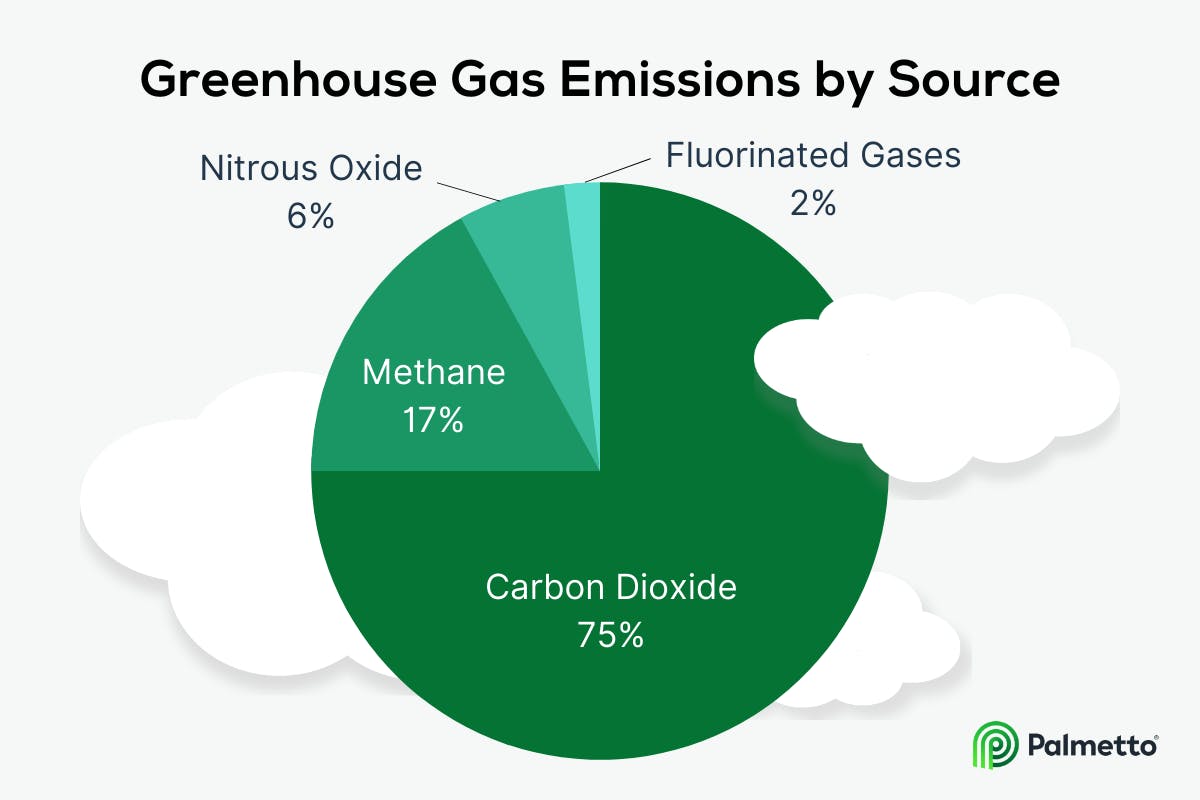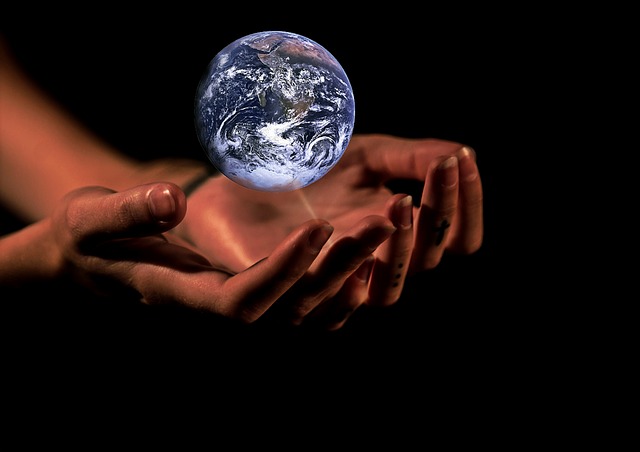
The UNFCCC, the United Nations Framework Convention on Climate Change is an international agreement that aims at regulating greenhouse gas emissions. It was negotiated during the 1992 Earth Summit, Rio de Janeiro. It has been ratified in 197 countries.
The UNFCCC's foundation was flawed in three key ways: It did not have a formal process, it had a small secretariat and it was not able to facilitate the transfer or environmentally responsible technologies. It was nevertheless the first treaty to establish an intergovernmental mechanism for controlling climate change. Since then, many international negotiations have been shaped by it.

Convention says that climate change must not hinder sustainable development and should be stopped in a way that allows ecosystems to adapt to climate change. Although it doesn't impose any enforceable requirements on signatories to reduce GHGs, it provides a framework for developing national climate change plans. In addition, the UNFCCC recognises the importance of biological systems in assessing the need to act against climate change.
The UNFCCC's main decision-making body is the Conference of the Parties (COP). At the COP, representatives of all 190 Parties to the Convention and governments discuss and debate global Climate Policy and Measures. A party must submit its National Communication once it has ratified the convention. A country's National Communication provides information to the UNFCCC about its current mitigation and adaptation plans. All developing countries are required to submit their National Communication once every four years.
The UNFCCC is an important piece of legislation that governs international climate negotiations. It was the basis for 2015 Paris Agreement. The agreement aims at reducing the earth's average temperature to 1.5 degrees Celsius below pre-industrial levels. Since its inception, the UNFCCC has been a source of information for developing scientific understanding of the climate problem.
International policy has also been influenced by the UNFCCC's focus on climate change extinction risk. This topic has attracted increasing attention over the years.

UNFCCC developed a mechanism known as Intended Nationally Determined Contributions during COP in Warsaw 2013 that allows developing nations tailor their plans to suit their countries' needs. The Conference of the Parties is also provided timely advice by the Subsidiary Body of Scientific and Technological Advice.
The UNFCCC has been a key step towards reducing climate change. But there is much controversy about how well it has worked. The record for the largest gathering ever of world leaders was set at the COPs in the past. COP23 for instance adopted the Gender Action Plan. It has guided efforts to develop gender-responsive strategies for climate change. Nevertheless, the UNFCCC has failed to facilitate the transfer of environmentally sound technologies to developing nations, and some Least Developed Countries have not ratified the treaty in the past five to fifteen years.
FAQ
How does climate politics affect global efforts for its resolution?
Climate change is a controversial issue that has caused a lot of division between nations, governments and individuals. Politics of different actors can have an impact on the implementation of climate change measures. It has been difficult for global consensus to address this urgent environment crisis.
Scientific consensus is unanimous that human-caused climate change is real and needs to be addressed. The politics surrounding these issues often undermines global cooperation which is needed to make effective progress in implementing sustainable energy practices, upholding regulations protecting natural habitats, researching viable technological solutions, and other climate change interventions.
Many governments across the globe are determined to protect their own economic interests and enforce regulations that restrict business activities. This frequently clashes with the regulations that experts recommend in order to tackle climate change effectively. Without strong commitments from all participating countries and wide-scale international action, it becomes very difficult for any single state or group of states to adequately address climate change through legislation or otherwise.
The difficulty of reaching a full consensus about the best way to combat climate change is further complicated by differences in power dynamics. Countries with more economic power often appoint their own representatives to represent them on international bodies responsible for negotiations over the environment - this can lead to lopsided discussions of those countries' perceived interests versus the collective interest of all involved parties. In addition, potential side effects from implementing radical changes such as geoengineering have been debated heavily at both national and international levels.
Also at the grassroots level, grassroots movements have fought against powerful opponents such as corporate ownerships. These lobbies are trying to preserve politically favorable positions for their industry especially when it is about funding research into alternative sources of energy production or enforcing Renewable Energy Technology mandates. If individual governments want to make valid progress in the subject matter themselves instead of seeking short-term benefits or spectacles, they must be clearheaded about possible outcomes.
To mitigate the current environmental crisis, it will be crucial that resources are properly distributed and political divisions between countries are not overlooked.
What is the status of international efforts to tackle climate change?
The international effort to tackle climate change has reached a new level of unity and momentum. Countries all over the world are now working together to reduce emissions, improve resilience against impacts, as well as invest in renewable energy sources.
The Paris Agreement, which has galvanized global action and provides a framework for countries to establish voluntary targets to reduce their emissions, serves as a framework. The UN Framework Convention on Climate Change and (UNFCCC) provides political guidance, as well as piloting initiatives such a carbon market.
Progress is also being made in specific regions; for example, The European Green Deal is a comprehensive package of legislation aimed at recreating Europe's economy with sustainability at its core, while countries of the African continent have committed to the African Renewable Energy Initiative which aims to increase Africa's share of global renewable energy production.
There are many sectors and industries that are taking action in addition to policy development. Cities are making active transitions toward sustainable public transport systems, while society overall is adopting more sustainable lifestyles. Businesses are innovating technologies which reduce emissions, while investors move their capital from fossil fuels to renewables.
The OECD committee has adopted common standards to report national actions on climate change by rich countries. This is known as the 2021 Guidelines.
These efforts demonstrate the importance of climate action. For any chance of reaching the climate goals set forth by science and international law, government, civil society, & private sector actors must build upon this momentum.
What is the potential impact of land-use change and deforestation upon climate change?
Deforestation, land use change and other factors have an immediate and direct impact on climate. The trees that have been cut down or burned can no longer absorb carbon dioxide, one of Earth's most important greenhouse gases. Deforestation and burning of trees for agricultural purposes removes less carbon dioxide from the atmosphere.
However, land use changes can increase greenhouse gas emissions. The use of fertilizer and pesticides can also increase the emissions of methane and nitrogen oxide when forests are replaced by agricultural lands. In addition, clearing can increase exposure to soils that contain large amounts of stored carbon; when these soils are turned over or disturbed by farming activities, they release additional carbon dioxide into the atmosphere.
Deforestation and land-use changes can have a significant impact on regional air quality. Smoke from deforestation-related burning events has been shown to cause decreased visibility and health problems such as asthma, as well as other respiratory conditions. The global climate can change as a result of changes in local air quality. This is because more sunlight reaches the Earth's surface than the atmosphere.
Deforestation and changes in land use have contributed significantly to the increase in global greenhouse gas emissions. They also have had adverse effects on local air quality, which further contributes to climate change. If serious efforts to combat climate change are to occur, it should be a top priority to reduce these practices.
What can be done to ensure a sustainable future, given the climate change challenges?
Sustainability is the ability to meet present needs without compromising the ability of future generations to meet their own needs. Climate change is presenting new challenges. We need to take immediate action to end our dependence on finite resources.
To move towards a more sustainable future, it is important for us to reconsider our current models of consumption and production, as well as our dependence on natural resources such as fossil fuels. We must search for new technologies, renewable energies, and systems to reduce harmful emissions, while still meeting our daily requirements.
In addition, it is essential that we adopt an integrated approach when looking at sustainability. This includes all aspects of production including materials, waste management and reuse strategies as well as energy usage in transport and industry. There are many potential solutions available including the utilization renewable energies like sun, wind, and water power; improved waste management systems; higher efficiency in agriculture; improved transport network; green building regulations; sustainable urban planning initiatives.
For us to achieve our goal, we must make behavioral changes across all segments of society. Education programs are required to educate people about climate change and show them how they can help create a more sustainable future.
Ultimately, only through collaboration between governments, industry leaders, and citizens will we be able to make significant progress in creating a more sustainable world for generations to come.
How can we address climate change by addressing the role of the energy industry?
The role of the energy sector in climate change is immense. The main source of global warming comes from the burning of fossil energy. It releases carbon dioxide in the atmosphere, traps heat, and results in an increase on Earth's average temperature.
This is why energy sources need to shift away from carbon-emitting resources like coal and natural gas and instead switch towards renewable energy sources such as solar, wind and geothermal. This shift can be made possible by both government policy and incentives as well investments in innovative technology like hydrogen-fuel cells. Businesses and households can reduce their carbon emissions by investing in infrastructure to support the use of renewable energy sources.
Another option is to move away from polluting transport options such as petroleum-fueled vehicles and towards electric cars or public transport. Governments can help lead society's transition from oil-based infrastructures to cleaner alternatives by funding research into battery technologies and encouraging consumers to make investments in cleaner modes.
To reduce carbon footprints, companies should adopt green business practices. For example, better insulation in offices and production facilities. This can help drastically reduce operational costs while simultaneously improving environmental performance metrics.
These initiatives must not only be supported at the company level, but also at the federal level to be truly successful. Taxing pollution products increases individuals' willingness to adopt healthier practices. But this won't force them to compete with polluters. Instead, vouchers or subsidies for low carbon products will create a continuous market to support sustainability. It is important to recognize that tackling climate change takes a lot of effort from both the private and public sectors.
How does climate change affect the world's oceans and marine life?
What are the impacts of climate changes on the oceans, and marine life worldwide?
Since its inception climate change has significantly affected the world's oceans as well as the marine life associated with them. The depletion of the ozone layer, which causes constant oceanic warming, has caused major disruptions to marine ecosystems. This has led to coral bleaching and a decline in species.
Climate change also causes unpredictable weather conditions and stronger storms. These extreme surges can be deadly for coastal areas. Changes in temperature can lead to a decrease in oxygen levels, which could cause "dead zone" conditions in which marine life is scarce.
Ocean acidification is also being caused by excessive carbon dioxide in the atmosphere. Ocean acidification alters the pH balance, which makes it impossible for some animals, like oysters, crabs, and clams to adapt.
Higher temperatures can also cause changes in natural habitats. They may shrink or change their geographical location, making it unhabitable for species that depend on them. The increase in ocean stresses accelerates the already high rates of extinction worldwide. This can lead to a severe imbalance among predators and prey, which could ultimately lead to complete extinction.
The impacts of climate change have rippled through entire ecosystems. They impact multiple species either directly or indirectly through evaporation, decreasing water volumes, or sharp temperature changes. This could jeopardize any sustainable development for fishing and other maritime activities. Global climate change continues to wipe out entire species of life on Earth, transforming our future lives not only on the land but also deep below the oceans' surface.
Statistics
- features Earth's average surface temperature in 2022 tied with 2015 as the fifth warmest on record, according to an analysis by NASA. (climate.nasa.gov)
- The 100 least-emitting countries generate 3 per cent of total emissions. (un.org)
- According to the 2014 report on Climate Change Impacts, Adaptation, and Vulnerability (page 8) from the United Nations Intergovernmental Panel on Climate Change, governments at various levels are also getting better at adaptation. (climate.nasa.gov)
- Fossil fuel production must decline by roughly 6 percent per year between 2020 and 2030. (un.org)
- Indigenous peoples and local communities receive less than 1% of all climate funding despite scoring wins for people and nature Africa's broken food markets must be fixed to tackle hunger (climatechangenews.com)
External Links
How To
How to Incorporate Sustainable Practices Into Your Daily Life To Fight Climate Change
It is possible to integrate sustainable practices into every day life by reducing the amount of resources you consume, such as food and energy. You can shop secondhand or borrow items from friends and family instead of purchasing new items every day. A vegetarian diet once or twice a month can help to reduce the amount of methane that is released into the atmosphere by reducing livestock production. Finally, whenever possible, turn off the lights when leaving a room to conserve energy.
A second way to combat climate change is to reduce emissions from transport sources such as cars and planes by carpooling or using public transit instead. Renewable power sources, such as solar panels, can be used to replace traditional fossil fuels. Supporting measures on the policy level that are promoting clean air regulations is also important in order for action on climate change to effectively happen. Engaging with others on issues such as plastic pollution and deforestation can be hugely beneficial, since it makes citizens more aware of the issue and encourages them to act.